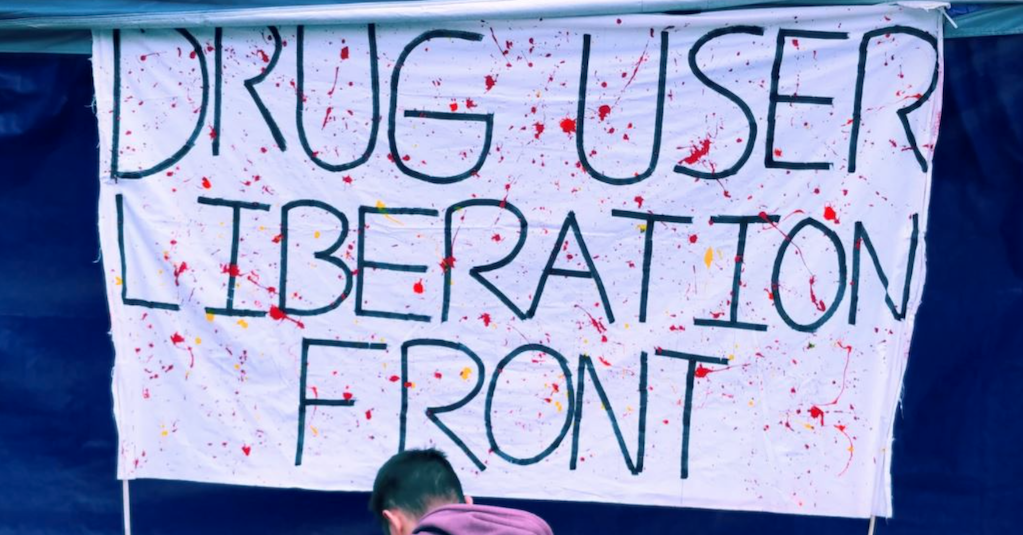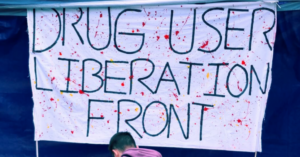
Court Will Decide If Crackdown on ‘Compassion Clubs’ to Save Lives During Overdose Crisis Was Reasonable
Judicial review to evaluate whether Vancouver drug advocacy group can distribute safe supply through “compassion clubs”
A federal court in BC will decide if the federal government’s crackdown on “compassion clubs” is reasonable after a Vancouver-based drug-user advocacy group appealed Health Canada’s decision to deny it the ability to test and distribute safe supply within the community.
The Drug User Liberation Front applied for an exemption in 2021 through Health Canada under the Controlled Drugs and Substances Act in order to operate a “safe supply fulfillment centre” in Vancouver in light of the limited avenues for accessing safe supply available and the urgency of the toxic drug and overdose crisis.
DULF’s request for exemption was denied on the basis that DULF planned to procure safe supply from illegal online markets. The judicial review will evaluate Health Canada’s decision.
However, DJ Larkin, a Vancouver lawyer with knowledge of the case, says a victory for DULF could set a national precedent for this type of intervention in Canada’s ongoing overdose crisis.
“If the court were to find that the government’s decision was unreasonable, that would mean that the court acknowledges that the government did not properly consider the safety and lives of people who are at risk,” Larkin told PressProgress.“As a lawyer, I question how reasonable it is to deny an exemption like this during a public health crisis when it is actually within the same government department’s jurisdiction and ability to have done something that actually would have created the pathway that DULF needed.”
Larkin cited Insite, the first sanctioned supervised drug consumption site in North America after receiving a federal exemption from Health Canada in 2003, as an example of the courts intervening and reversing a government decision in order to respect the rights of people who use drugs to “life and liberty.”
“This would be standing on firm ground with the Insite case as a precedent and it would be a very significant step forward, because we do not have case law yet that really addresses the way in which prohibition causes people to have to access drugs through an unregulated and criminalized market,” Larkin said.
“Within the unregulated drug market, it would be a pathway towards finding a solution including compassion clubs. They could rapidly remove people from the unregulated market, provide some safety and redistribute resources in a way that we could actually be helping people.”
The judicial review is set against the backdrop of an urgent need for a response to the escalating drug poisoning crisis in BC.
In January of this year, 198 people died in BC as a result of the toxic drug and overdose crisis.
However, DULF’s operation of a local compassion club, to provide community members access to safe supply and save lives, was met with a carceral response from law enforcement in Vancouver last year.
In October, Vancouver Police Department raided the DULF in Vancouver and arrested DULF’s Eris Nyx and Jeremy Kalicum, who were arrested “for suspected trafficking of controlled substances and for possession with the intent to traffic controlled substances.” They have not yet been charged.
A week later, an expert death review panel found “non-medical models to distribute safer supply are needed.” The panel urged the government to “immediately pursue additional measures to expand access to safer supply by allowing access for people at risk of significant injury or death without a prescription.”
A recent paper evaluating the impact of “unsanctioned compassion clubs” demonstrated this kind of novel intervention into the crisis has life-saving potential. The paper includes DULF’s Nyx and Kalicum as co-authors, alongside two researchers with the BC Centre on Substance Use.
Report co-author Thomas Kerr, a professor at UBC’s department of medicine and the Director of Research with the BCCSU, says that although the drug poisoning crisis continues to get worse, this research demonstrates the compassion club was successful in achieving its goals.
“We are in the midst of the worst public health crisis in modern Canadian history,” Kerr told PressProgress. “Unfortunately, despite all our efforts to date which have involved some innovative projects, the illicit drug supply becomes more contaminated and more unpredictable.”
Kerr says prescriber-based safe supply programs, where individuals can access safe supply under the supervision of physicians, are difficult to access and aren’t wide-reaching.
“The bottom line is we need further innovation and we need alternative models of safe Supply that can reach a greater number of people and be more acceptable to the community of people who use drugs,” Kerr said.
“DULF did this by implementing what is to my knowledge the first ever highly organized, rigorous Compassion Club and I would say that what the study demonstrates is that they’ve been very successful. This program was really implemented because DULF wanted to do something to prevent their friends and their community from dying of overdoses.”
The results of the study show DULF succeeded in reducing the likelihood of non-fatal overdose.
“When people were in this Compassion Club, even though it operated for a short period of time, we were able to demonstrate that they were 49% less likely to experience any kind of non-fatal overdose and there were 63% less likely to experience an overdose involving Naloxone, which probably speaks to more serious opioid related overdose events,” Kerr said.
“In doing this work, they demonstrated the feasibility, safety and initial impact of a very novel response to the overdose drug poisoning crisis.”
Kerr added that in order for things to change, public policy change is needed to be able to allow groups like DULF to implement these kinds of interventions.
“We need policy change at the federal level in particular,” Kerr said. “We need mechanisms to allow for the legally sanctioned operation of these programs along with continued rigorous evaluation and research so that policymakers are actually getting information that they need to make decisions.”
“Right now all we’re left with is a bunch of politicized discourse around these initiatives which is incredibly unhelpful and at times flat out misleading.”
The judicial review is set to take place on March 7-8 in Vancouver.
Our journalism is powered by readers like you.
We’re an award-winning non-profit news organization that covers topics like social and economic inequality, big business and labour, and right-wing extremism.
Help us build so we can bring to light stories that don’t get the attention they deserve from Canada’s big corporate media outlets.
Donate



